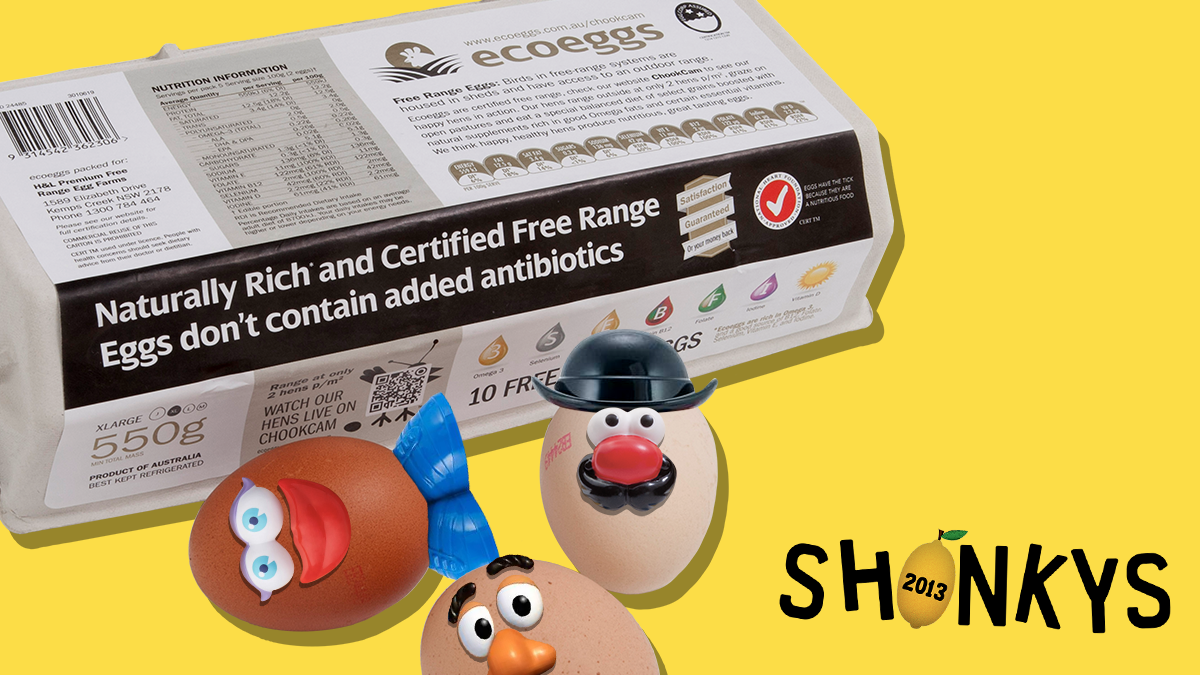Outdoor chook-stocking density is a huge issue when it comes to free range egg standards, and CHOICE has been demanding a crackdown on claims for ages.
We support the national free range egg code that allows for 1500 hens per hectare – but it’s voluntary.
Last year, the ACCC rejected the Australian Egg Corporation’s application to introduce a standard that would see a maximum of 20,000 hens per hectare on the grounds that it was likely to mislead consumers.
But this hasn’t stopped Ecoeggs, which has a stocking rate of 20,000 hens per hectare – more than 13 times higher than the code – and we reckon that’s far too many for what most people would think of as “free range”.
And if you think a higher stocking rate means lower prices, you’d be wrong: when we checked out local supermarkets, Ecoeggs were more expensive than other free range eggs from lower stocking rates.
People who buy Ecoeggs may reasonably believe the name means a higher standard of production than other free range eggs, and the price suggests the same.
But in the end we were left wondering exactly what was “eco” about Ecoeggs.

